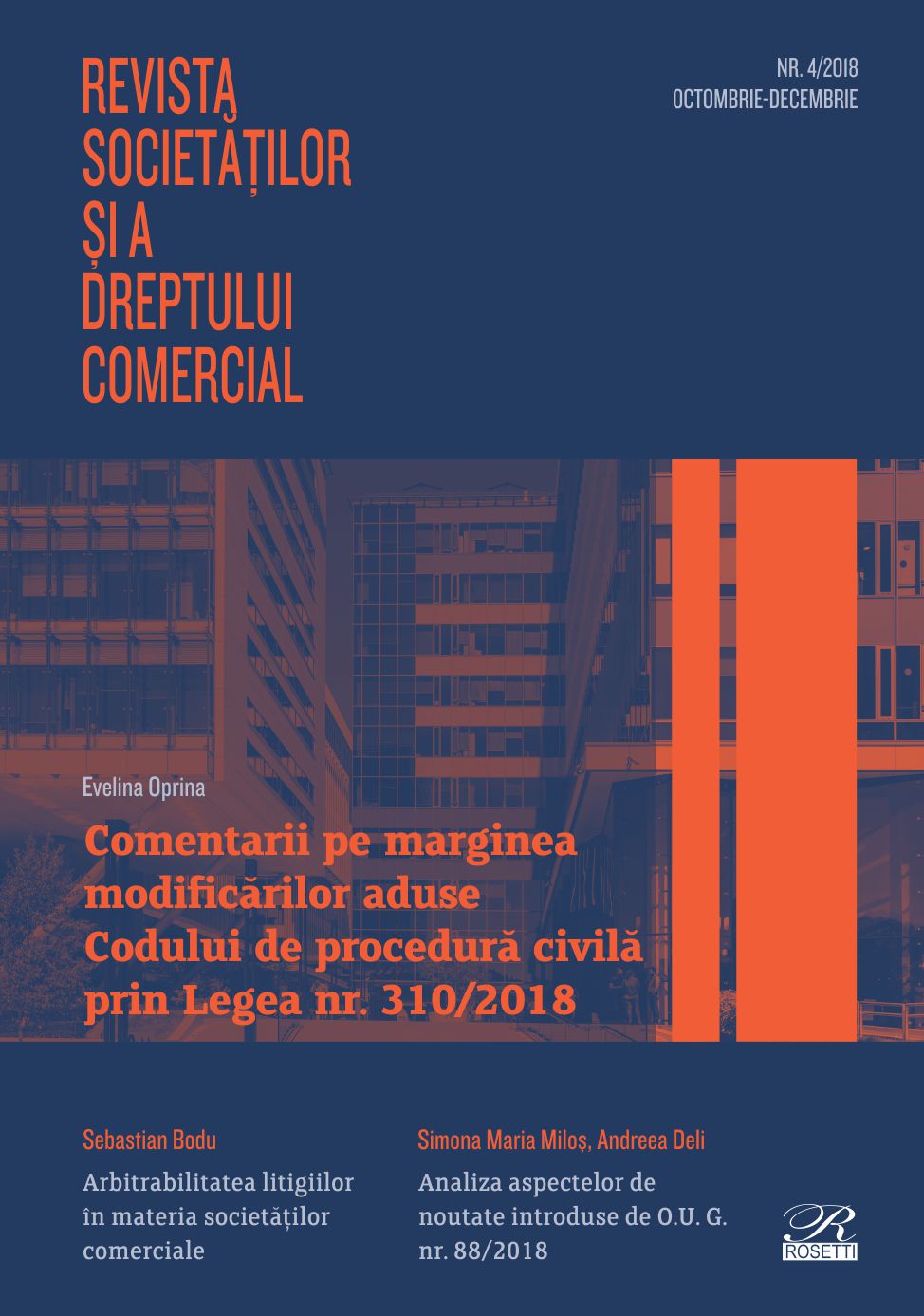Acţiunile cu vot plural (multiplu): o legiferare ratată
Multiple voting shares: a failed regulation
Author(s): Sebastian BoduSubject(s): Law, Constitution, Jurisprudence, Court case
Published by: Editura Rosetti International
Keywords: Breakthrough Rule; closed (private) companies; Dual class stock; classes of stock; historical founders; hostile takeover; listed companies; mergers; preferred stock; stock with limited voting rights;
Summary/Abstract: Rezumat: Acţiunile cu vot plural reprezintă clase de acţiuni privilegiate construite în jurul dreptului de vot. Acestea dau dreptul la mai multe voturi per acţiune, în timp ce acţiunile cu vot fracţionat dau dreptul la o fracţiune de vot per acţiune. Deşi Legea nr. 31/1990 privind societăţile nu reglementează acest tip de acţiuni, deci nu le permite, odată cu reglementarea lor generică în Legea nr. 24/2017 privind emitenţii de instrumente financiare şi operaţiuni de piaţă, legiuitorul pieţei de capital a deschis calea stabilirii oricâtor clase de acţiuni cu drept de vot plural, lăsând totală libertate actului constitutiv de a stabili caracteristicile de clasă. Acest lucru vine în contradicţie nu numai cu principiile dreptului societar, ci şi cu tendinţele moderne ale legislaţiilor importante ale lumii, care limitează drastic utilizarea acestor acţiuni, în special la societăţile listate. Istoric, scopul lor era şi este de a conserva controlul în mâinile fondatorilor, după listarea societăţii. Cum România nu are societăţi cu fondatori istorici şi nici societăţi de tip închis emitente de acţiuni cu vot plural (cu o singură şi regretabilă excepţie, ca urmare a unei erori de apreciere a instanţei noastre supreme), economia de piaţă repornind de la zero în 1990, reglementarea acţiunilor cu vot plural în legislaţia valorilor mobiliare apare ca inutilă şi este, cel mai probabil, rodul transpunerii fără adaptare a celei de-a Treia Directivă Societară privind fuziunile. Actul normativ european tratează, într-adevăr, acţiunile cu vot plural, dar în contextul lipsirii lor de efectele specifice în cazul unei preluări ostile a societăţii listate (regula breakthrough). Abstract: Dual class shares are preferred class stock constructed around the voting right. Such stock allows multiple voting per share, while stock with limited voting rights allow only a fraction of a vote per share. Although Companies Law no. 31/1990 does not regulate this type of stock, starting with their generic regulation in Law. No. 24/2017 regarding the issuers of financial instruments and market operations, the capital markets legislator opened the door for as many dual class stock, given charters total freedom to set their rights. This conflicts not only with the corporate law principles, but also the modern trends of the world jurisdictions, that severely limits such stock, especially for the listed companies. Historically, their purpose was and still is to preserve voting control in the hands of the founders, after listing the company. While Romania does not have historical founders, nor closed (private) companies that issued dual class stock (with one exception, resulted from an assessment error of our supreme court), since the market economy restarted from zero in 1990, regulating dual class stock in the securities legislation appears as futile, and represents, most probably, the result of the transposition, without adaptation, of the Third Companies Directive regarding mergers. The European Act treats, indeed, dual class stock, but in the context of depriving it of the specific effects in case of a hostile takeover of the listed company (Breakthrough Rule).
Journal: Revista Societăților și a Dreptului Comercial
- Issue Year: 2018
- Issue No: 1
- Page Range: 1-19
- Page Count: 19
- Language: Romanian
- Content File-PDF

